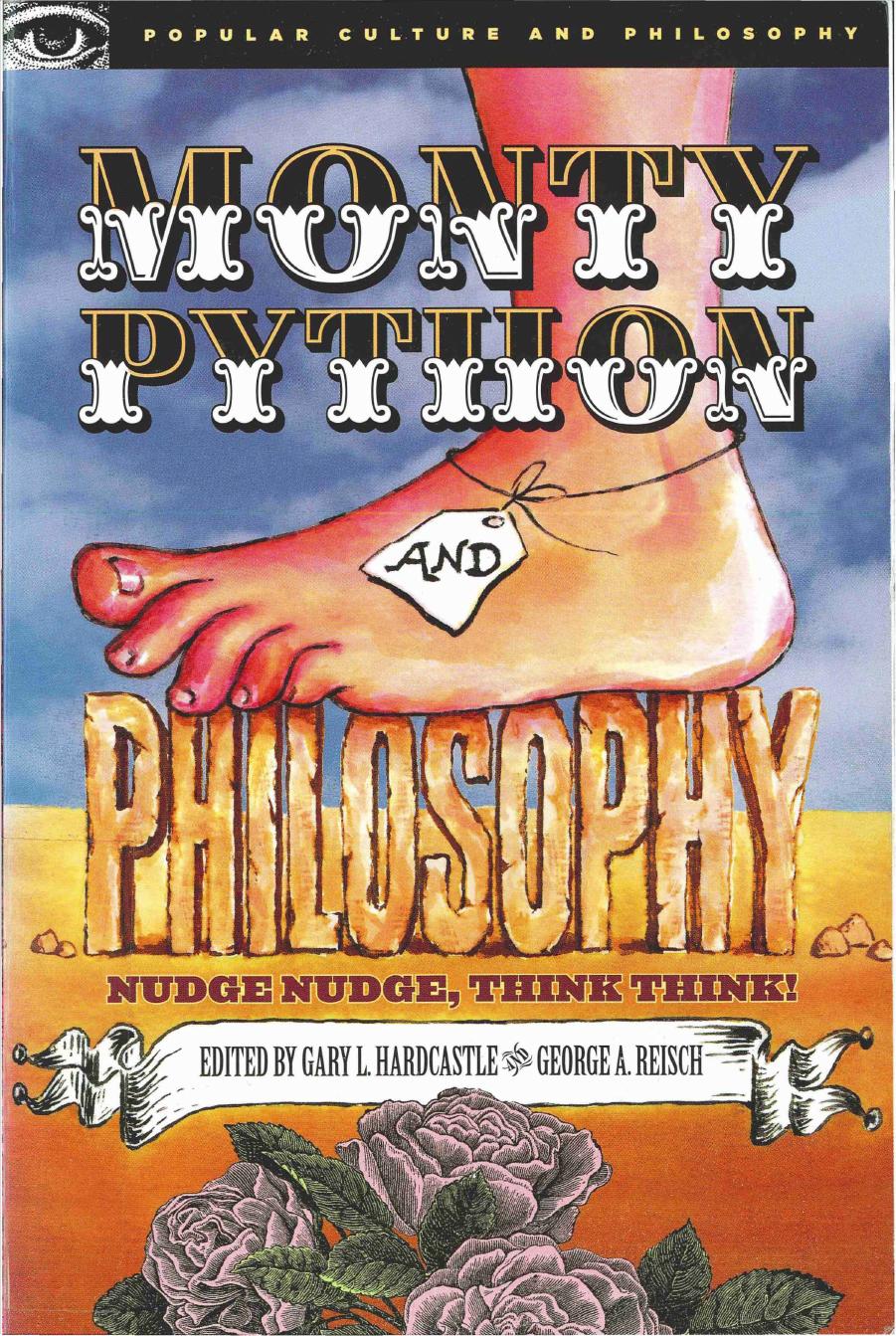Monty Python and Philosophy by Gary L. Hardcastle

Author:Gary L. Hardcastle
Language: eng
Format: epub, pdf
Publisher: Open Court
Published: 2010-06-14T16:00:00+00:00
Each little snake that poisons,
Each little wasp that stings.
He made their brutish venom,
He made their horrid wings.
All things sick and cancerous,
All evil great and small,
All things foul and dangerous,
The Lord God made them all.
Each nasty little hornet,
Each beastly little squid.
Who made the spiky urchin?
Who made the sharks? He did.
All things scabbed and ulcerous,
All pox both great and small.
Putrid, foul, and gangrenous,
The Lord God made them all.
Hume believed that the Argument from Design did not derive its persuasiveness from observations of the imperfect world around us, but rather from weakly veiled appeals to church doctrine, which preached the existence of a single, all-powerful, eternal, and benevolent God. Our observations of the world are influenced by our prior beliefs about God. In other words, when we look out at the world, we aren’t seeing evidence of God’s attributes in the world, rather, we are simply seeing the world through God-colored glasses, selectively ignoring all things dull, ugly, rude, and nasty. Hume thought that not very much about God can be inferred from his creation. To underscore his point, he ventured a number of hypotheses equally compatible with the observations. Perhaps, he mused, the universe is the work of many Gods. Or maybe it was initiated by a deity who has long since abandoned it to its own devices.
There is a scene in Terry Gilliam’s opening animation sequence to Monty Python’s The Meaning of Life where God is shown vacillating between two possible earths, one spherical and the other cubical. Opting for the spherical one, he tosses it off to one side whereupon it promptly cracks open. Hume had invoked a similar image in Dialogues Concerning Natural Religion to emphasize that a number of different creation scenarios were consistent with our observations of the world around us:This world [for all we know] is very faulty and imperfect, compared to a superior standard; and was only the first rude essay of some infant Deity, who afterwards abandoned it, ashamed of his lame performance. (p. 71)
Download
Monty Python and Philosophy by Gary L. Hardcastle.pdf
This site does not store any files on its server. We only index and link to content provided by other sites. Please contact the content providers to delete copyright contents if any and email us, we'll remove relevant links or contents immediately.
Cecilia; Or, Memoirs of an Heiress — Volume 1 by Fanny Burney(32561)
The Great Music City by Andrea Baker(32021)
Cecilia; Or, Memoirs of an Heiress — Volume 2 by Fanny Burney(31958)
Cecilia; Or, Memoirs of an Heiress — Volume 3 by Fanny Burney(31944)
We're Going to Need More Wine by Gabrielle Union(19050)
All the Missing Girls by Megan Miranda(16038)
Pimp by Iceberg Slim(14515)
For the Love of Europe by Rick Steves(14149)
Bombshells: Glamour Girls of a Lifetime by Sullivan Steve(14078)
Talking to Strangers by Malcolm Gladwell(13375)
Norse Mythology by Gaiman Neil(13372)
Fifty Shades Freed by E L James(13245)
Mindhunter: Inside the FBI's Elite Serial Crime Unit by John E. Douglas & Mark Olshaker(9346)
Crazy Rich Asians by Kevin Kwan(9295)
The Lost Art of Listening by Michael P. Nichols(7507)
Enlightenment Now: The Case for Reason, Science, Humanism, and Progress by Steven Pinker(7315)
The Four Agreements by Don Miguel Ruiz(6767)
Bad Blood by John Carreyrou(6625)
Weapons of Math Destruction by Cathy O'Neil(6283)
